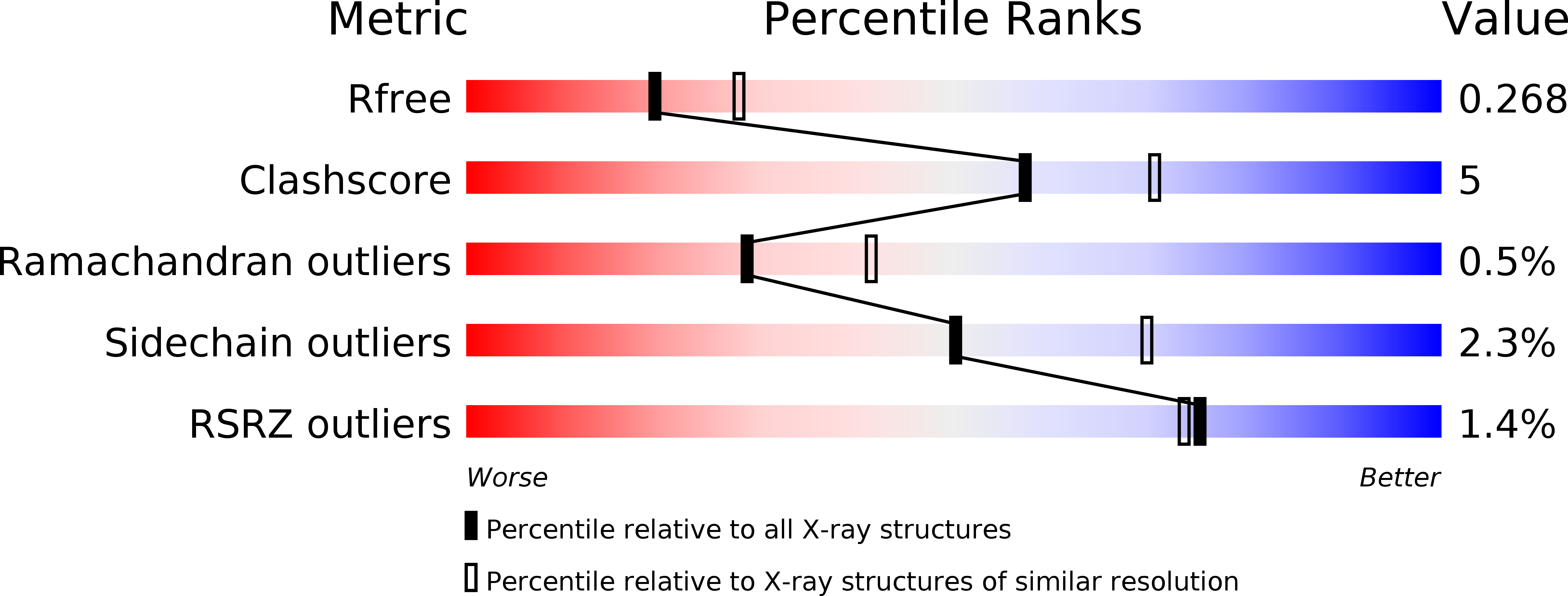
Deposition Date
2010-07-02
Release Date
2011-05-18
Last Version Date
2023-09-06
Entry Detail
PDB ID:
3NT7
Keywords:
Title:
Crystal Structure of Vaccinia Virus Uracil DNA Glycosylase R187V Mutant
Biological Source:
Source Organism(s):
VACCINIA VIRUS WESTERN RESERVE (Taxon ID: 696871)
Expression System(s):
Method Details:
Experimental Method:
Resolution:
2.40 Å
R-Value Free:
0.27
R-Value Work:
0.22
R-Value Observed:
0.22
Space Group:
P 32 2 1


